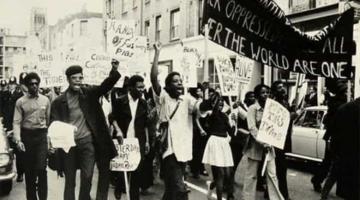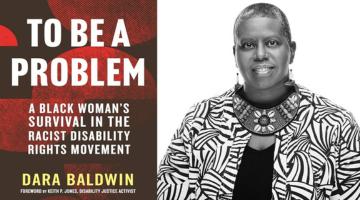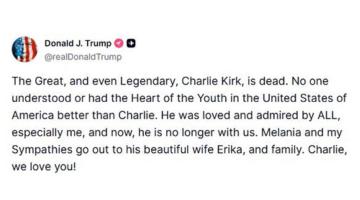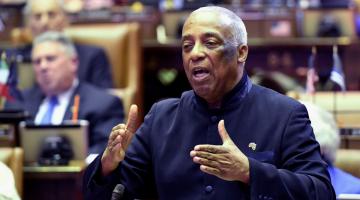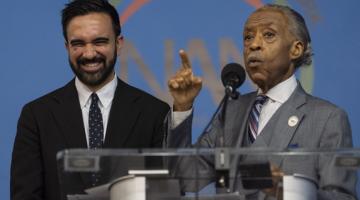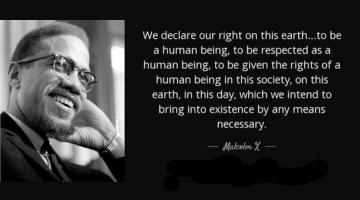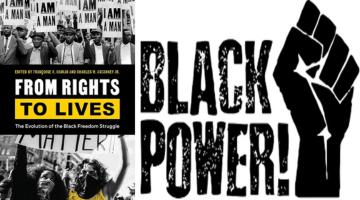For the late Dr. Bernice Johnson Reagon, Black music was a tool in the struggle for Black liberation, and not what it has mostly become today: a retrograde appendage to neoliberalism and white power.
It has been a dreary season for Black music. Between the horrific hip-hop sexual assault scandals and the empty corporate rap battles, we’ve seen Chuck D of the legendary Public Enemy appointed as a goodwill ambassador for the U.S. State Department, a platinum blonde Beyoncé draped in the bloody US flag, and Megan Thee Stallion literally twerking for Kamala Harris, proud cop, happy zionist, and unrepentant genocide enabler.
In the midst of this madness, we lost one of our greatest advocates for Black music as a vehicle for social justice for Black People: On July 16, Dr. Bernice Johnson Reagon departed these shores for a better and, we hope, more just, world.
Born in 1942 in Dougherty County, Georgia, Dr. Reagon was a song leader, composer, historian, and social activist whose voice was part of the soundtrack of the Civil Rights Movement. She was a founding member of the Freedom Singers, organized in the early 1960s by the Student Non-Violent Coordinating Committee during the Albany Movement, in Albany Georgia, as well as of two all-Black, all-female a cappella ensembles, the Harambee Singers and Sweet Honey in the Rock. Dr. Reagon also completed a PhD in History at Howard University, working under Lorraine A. Williams, with Rayford A. Logan also on her dissertation committee. Dr. Reagon’s dissertation was titled “Songs of the Civil Rights Movement, 1955-1965: A Study in Culture History.”
In all of her work, be it songs or scholarship, Dr. Reagon saw music as an essential instrument for social and political change. Black music was a critical tool in the struggle for Black liberation and freedom and, for Dr. Reagon, the musician–the artist–should embrace their political role and identity.
In an essay titled “In Our Hands: Thoughts on Black Music,” published in 1976 in Sing Out! The Folk Song Magazine, Dr. Reagon wrote: “I believe that Black musicians/artists have a responsibility to be conscious of their world and to let their consciousness be heard in their songs.”
It is a view that seems to run counter to much of today’s Black music, where too often musical tastes are determined by satanic algorithms and white corporate executives – and artists would rather align with power than fight it. Dr. Reagan’s “In Our Hands: Thoughts on Black Music,” is reproduced below.
In Our Hands: Thoughts on Black Music
Bernice Johnson Reagon
In the early 1960s, I was in college at Albany State [Georgia]. My major interests were music and biology. In music I was a contralto soloist with the choir, studying Italian arias and German leider. The Black music I sang was of three types:
1) Spirituals sung by the college choir. These were arranged by such people as Nathaniel Dett and William Dawson and had major injections of European musical harmony and composition.
2) Rhythm ’n’ Blues, music done by and for Blacks in social settings. This included the music of bands at proms, juke boxes, and football game songs.
3) Church music; gospel was a major part of Black church music by the time I was in college. I was a soloist with the gospel choir.
Prior to the gospel choir, introduced in my church when I was twelve, was many years experience with unaccompanied music ⎯ Black choral singing, hymns, lined out by strong song leaders with full, powerful, richly ornate congregational responses. These hymns were offset by upbeat, clapping call-and- response songs.
I saw people in church sing and pray until they shouted. I knew that music as a part of a cultural expression that was powerful enough to take people from their conscious selves to a place where the physical and intellectual being worked in harmony with the spirit. I enjoyed and needed that experience. The music of the church was an integral part of the cultural world into which I was born.
Outside of church, I saw music as good, powerful sounds you made or listened to. Rhythm and blues ⎯ you danced to; music of the college choir ⎯ you clapped after the number was finished.
The Civil Rights Movement changed my view of music. It was after my first march. I began to sing a song and in the course of singing changed the song so that it made sense for that particular moment. Although I was not consciously aware of it, this was one of my earliest experiences with how my music was supposed to function. This music was to be integrative of and consistent with everything I was doing at that time; it was to be tied to activities that went beyond artistic affairs such as concerts, dances, and church meetings.
The next level of awareness came while in jail. I had grown up in a rural area outside the city limits, riding a bus to public school or driving to college. My life had been a pretty consistent, balanced blend of church, school, and proper upbringing. I was aware of a Black educated class that taught me in high school and college, of taxi cabs I never rode in, and of people who used buses I never boarded. I went to school with their children.
In jail with me were all these people. All ages. In my section were women from about thirteen to eighty years old. Ministers’ wives and teachers and teachers’ wives who had only nodded at me or clapped at a concert or spoken to my mother. A few people from my classes. A large number of people who rode the segregated city buses. One or two women who had been drinking along the two-block stretch of Little Harlem as the march went by. Very quickly, clashes arose: around age, who would have authority, what was proper behavior?
The Albany Movement was already a singing movement and we took the songs to jail. There the songs I had sung because they made me feel good or because they said what I thought about a specific issue did something. I would start a song and everybody would join in. After the song, the differences among us would not be as great. Somehow, making a song required an expression of that which was common to us all. The songs did not feel like the same songs I had sung in college. This music was like an instrument, like holding a tool in your hand.
I found that although I was younger than many of the women in my section of the jail, I was asked to take on leadership roles. First as a song leader and then in most other matters concerning the group, especially in discussions, or when speaking with prison officials.
I fell in love with that kind of music. I saw that to define music as something you listen to, something that pleases you, is very different from defining it as an instrument with which you can drive a point. In both instances, you can have the same song. But using it as an instrument makes it a different kind of music.
The next level of awareness occurred during the first mass meeting after my release from jail. I was asked to lead the song that I had changed after the first march. When I opened my mouth and began to sing, there was a force and power within myself I had never heard before. Somehow this music ⎯- music I could use as an instrument to do things with, music that was mine to shape and change so that it made the statement I needed to make ⎯- released a kind of power and required a level of concentrated energy I did not know I had. I liked the feeling.
For several years, I worked with the Movement eventually doing Civil Rights songs with the Freedom Singers. The Freedom Singers used the songs, interspersed with narrative, to convey the story of the Civil Rights Movement’s struggles. The songs were more powerful than spoken conversation. They became a major way of making people who were not on the scene feel the intensity of what was happening in the south. Hopefully, they would move people to take a stand, to organize support groups or participate in the various projects.
The Georgia Sea Island Singers, whom I first heard at the Newport Festival, were a major link. Bessie Jones, coming from within twenty miles of Albany, Georgia, had a repertoire and song-leading style I recognized from the churches I had grown up in. She, along with John Davis, would talk about songs that Black people had sung as slaves and what those songs meant in terms of their struggle to be free. The songs did not sound like the spirituals I had sung in college choirs; they sounded like the songs I had grown up with in church. There I had been told the songs had to do with worship of Jesus Christ.
The next few years I spent focusing on three components: 1) The music I had found in the Civil Rights Movement. 2) Songs of the Georgia Sea Island Singers and other traditional groups, and the ways in which those songs were linked to the struggles of Black peoples at earlier times. 3) Songs of the church that now sounded like those traditional songs, and came close to having, for many people, the same kind of freeing power.
There was another experience that helped to shape my present day use of music. After getting out of jail, the mother of the church my father pastored was at the mass meeting. She prayed, a prayer I had heard hundreds of times. I had focused on its sound, tune, rhythm, chant, whether the moans came at the proper pace and intensity. That morning I heard every word that she said. She did not have to change one word of a prayer she had been praying for much of her Christian life for me to know she was addressing the issues we were facing at that moment. More than her personal prayer, it felt like an analysis of the Albany, Georgia Black community.
My collection, study, and creation of Black music had been, to a large extent, about freeing the sounds and the words and the messages from casings in which they have been put, about hearing clearly what the music has to say about Black people and their struggle.
When I first began to search, I looked for what was then being called folk music, rather than for other Black forms, such as jazz, rhythm and blues, or gospel. It slowly dawned on me that during the Movement we had used all those forms. When we were relaxing in the office, we made up songs using popular rhythm and blues tunes, songs based in rhythm and blues also came out of jails, especially from the sit-in movement and the march to Selma, Alabama. “Oh Wallace, You Never Can Jail Us All” is an example from Selma. “You Better Leave Segregation Alone” came out of the Nashville Freedom Rides and was based on a bit by Little Willie John, “You Better Leave My Kitten Alone.” Gospel choirs became the major musical vehicle in the urban center of Birmingham [Alabama], with the choir led by Carlton Reese. There was also a gospel choir in the Chicago work [when King and SCL1 went North], as well as an instrumental ensemble led by Ben Branch.
Jazz had not been a strong part of my musical life. I began to hear it as I traveled north. Thelonious Monk and Charlie Mingus played on the first SNCC benefit at Carnegie Hall. I heard of and then heard Coltrane. Then I began to pick up the pieces that had been played by Charlie Parker and Coleman Hawkins and whole lifetimes of music. This music had no words. But, it had power, intensity and movement under various degrees of pressure; it had vocal texture and color. I could feel that the music knew how it felt to be Black and Angry. Black and Down, Black and Loved, Black and Fighting.
I now believe that Black music exists in every place where Black people run, every corner where they live, every level on which they struggle. We have been there a long while, in many situations. It takes all that we have created to sing our song. I believe that Black musicians/artists have a responsibility to be conscious of their world and to let their consciousness be heard in their songs.
And we need it all ⎯- blues, gospel, ballads, children’s games, dance, rhythms, jazz, lovesongs, topical songs ⎯- doing what it has always done. We need Black music that functions in relation to the people and community who provide the nurturing compost that makes its creation and continuation possible.
Bernice Johnson Reagon, “In Our Hands: Thoughts on Black Music,” Sing Out! The Folk Song Magazine (January 1976)
Rest in power, Dr. Bernice Johnson Reagon (October 4, 1942 – July 16, 2024).



